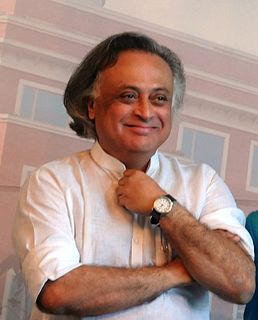A Quote by Bertrand Russell
If the State does not acquire supremacy over [vast private] enterprises, it becomes their puppet, and they become the real State.
Related Quotes
Ordinarily all desires exist in the second state of consciousness, the dreaming state. Desire is a dream and to work for a dream is doomed from the very beginning, because a dream can never become real. Even if sometimes you feel it has become almost real, it never becomes real - a dream by nature is empty. It has no substance in it.
All the alleged key causes of SOE [State-Owned Enterprise] inefficiency - the principal-agent problem, the free-rider problem and the soft budget constraint - are, while real, not unique to state-owned enterprises. Large private-sector firms with dispersed ownership also suffer from the principal-agent problem and the free-rider problem. So, in these two areas, forms of ownership do matter, but the critical divide is not between state and private ownership - it is between concentrated and dispersed ownerships.
Corporations are legal fictions created by the State to shield executives from liability… It’s like if I had a little hand-puppet, and I went to rob a bank, and the hand-puppet held the little gun and told people to hand over all the money, and then the hand-puppet grabbed the money and ran out, and then I got caught and I handed the hand-puppet over the police and then the police tried the hand-puppet, put the hand-puppet in jail, and I get to keep all the money.
Industrialisation is necessary. But acquisition is by no means the only avenue through which it can be achieved. The Cochin Airport is a prime example of this. Instead of choosing to acquire the land, the State asked the private parties to negotiate with the landowners directly. The State merely acted as an arbitrator.
Meditative state is the highest state of existence. So long as there is desire, no real happiness can come. It is only the contemplative, witness-like study of objects that brings to us real enjoyment and happiness. The animal has its happiness in the senses, the man in his intellect, and the god in spiritual contemplation. It is only to the soul that has attained to this contemplative state that the world really becomes beautiful. To him who desires nothing, and does not mix himself up with them, the manifold changes of nature are one panorama of beauty and sublimity.
Every politically controlled educational system will inculcate the doctrine of state supremacy sooner or later. . . . Once that doctrine has been accepted, it becomes an almost superhuman task to break the stranglehold of the political power over the life of the citizen. It has had his body, property and mind in its clutches from infancy. An octopus would sooner release its prey. A tax-supported, compulsory educational system is the complete model of the totalitarian state.
[W]hich category of crimes does the State pursue and punish most intensely? [T]hose against private citizens or those against itself? The gravest crimes in the State's lexicon are almost invariably not invasions of private person or property, but dangers to its own contentment, for example, treason, desertion of a soldier to the enemy, failure to register for the draft, subversion and subversive conspiracy, assassination of rulers and such economic crimes against the State as counterfeiting its money or evasion of its income tax.
The welfare state corrupts family life. Even Democrats have acknowledged the destructive consequences of the welfare state on the underclass. It has rendered vast numbers of male unnecessary to females, who have looked to the state to support them and their children (and the more children, the more state support) rather than to husbands. In effect, these women took the state as their husband.
But obviously a state which becomes progressively more and more of a unity will cease to be a state at all. Plurality of numbers is natural in a state; and the farther it moves away from plurality towards unity, the less of a state it becomes and the more a household, and the household in turn an individual.



































